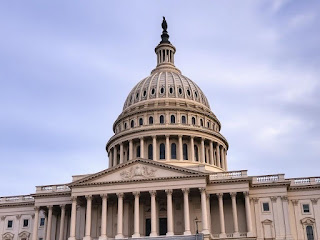George Washington: Pioneering Leadership and Enduring Impact
Introduction
George Washington, often celebrated as the "Father of His Country," played a defining role in shaping the United States. As a Revolutionary War hero and the nation's first President, his leadership, foresight, and commitment laid the groundwork for a lasting democracy.
Early Life and Education
George was born on February 22, 1732, in Westmoreland County, Virginia. Coming from a moderately wealthy family, he received an education that emphasized mathematics, geography, and surveying. His early work as a surveyor gave him an in-depth understanding of the American frontier, which later proved vital in his military and political career.
Military Leadership in the Revolutionary War
Washington commenced his military career in the Virginia militia amid the French and Indian War. His natural leadership skills quickly earned recognition, and by 1775, he was appointed Commander-in-Chief of the Continental Army. Despite harsh conditions and resource shortages, including the brutal winter at Valley Forge, Washington's perseverance and tactical expertise led to the decisive victory at Yorktown in 1781, securing American independence.
The First President of the United States
In 1789, George Washington became the first President of the United States, unanimously elected by the Electoral College. Serving two terms (1789–1797), he set critical precedents, including the formation of a presidential cabinet and the peaceful transfer of power. His Farewell Address remains an enduring message emphasizing unity, caution against political divisions, and prudence in foreign alliances.
Key Achievements and Contributions
Defining the Presidency: Set the foundation for presidential roles and responsibilities.
Neutrality Proclamation (1793): Maintained U.S. independence from European conflicts.
Bill of Rights Implementation: Ensured essential freedoms for citizens.
Founding of the National Bank: Created a stable economic framework for the nation.
Judiciary Act of 1789: Established the federal court system.
Washington's Legacy
George Washington's legacy transcends his presidency. He remains an enduring symbol of leadership, integrity, and dedication to national unity. His name is honored in cities, schools, and the nation's capital, reflecting his monumental contributions to American history.
Personal Life
In 1759, Washington wed Martha Custis, an affluent widow. Together, they raised Martha's two children from her previous marriage, forming a close-knit family. At their Mount Vernon estate, Washington focused on agricultural innovations and estate management. Though he owned enslaved individuals, his views on slavery evolved, and he included provisions in his will for their emancipation after his death.
The Passing of a Leader
On December 14, 1799, George Washington passed away at his Mount Vernon home in Virginia. His death marked the end of a life devoted to public service and the betterment of his nation. However, his values and principles continue to influence the United States to this day.
Conclusion
George Washington was not merely a leader but a visionary whose dedication and sacrifices laid the foundation for the United States. His enduring legacy serves as a guiding light for generations to come.
FAQs About George Washington
1. Why is George Washington called the "Father of His Country"?
He earned this title due to his central role in founding the United States and establishing key presidential precedents.
2. What were George Washington's significant achievements?
His leadership during the Revolutionary War, establishment of the presidency, and focus on national unity are among his most notable contributions.
3. Did George Washington have children?
No, he did not have biological children, but he raised Martha Custis's two children as his own.
4. Where is George Washington buried?
He is buried at his Mount Vernon estate in Virginia.
5. What was George Washington's stance on slavery?
While he owned enslaved people, his views evolved, and his will included provisions for their emancipation.Find out my favorite Health and Fitness products here: https://linktr.ee/iamatiiq





.jpg)

.jpg)
Comments
Post a Comment